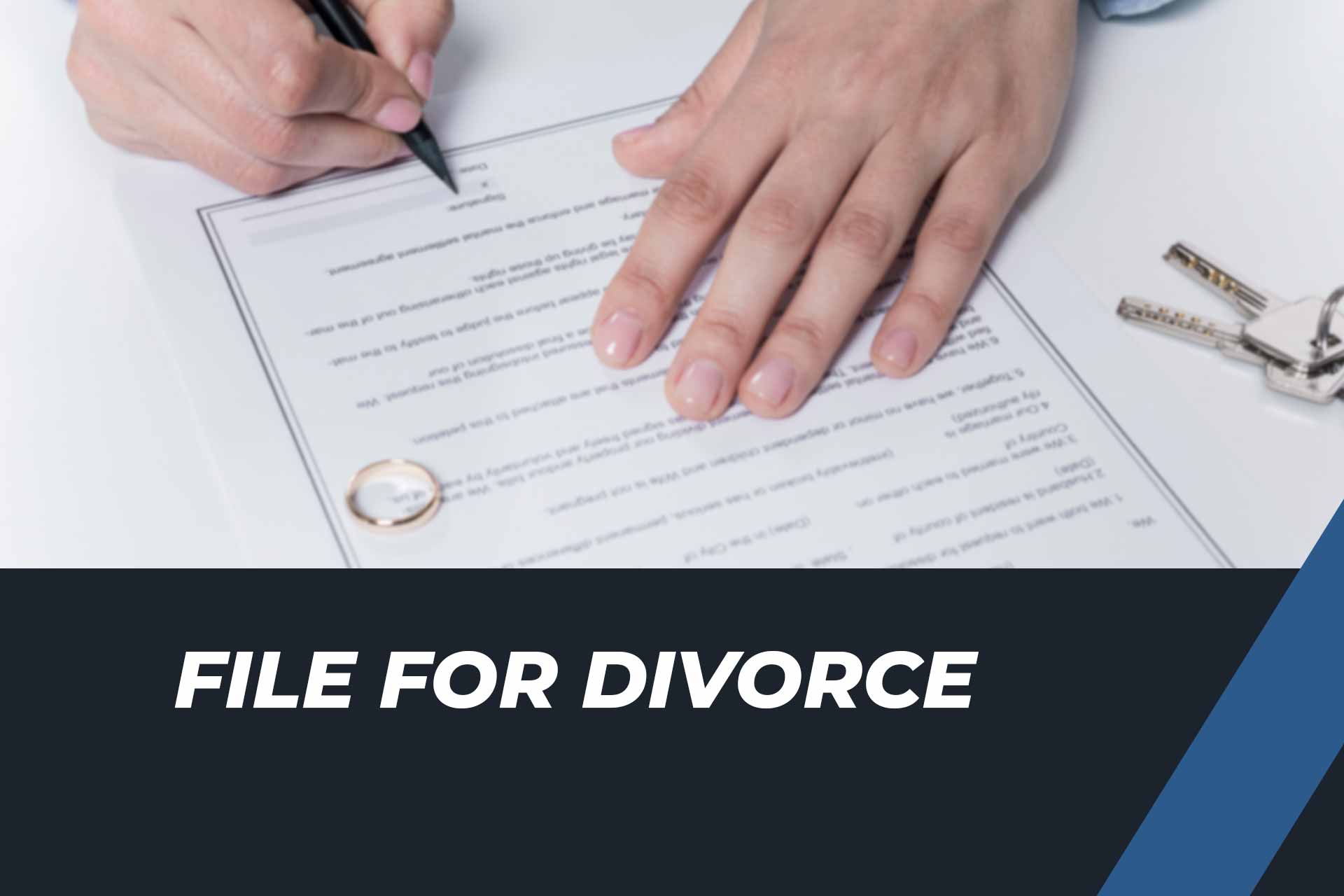File for divorce can be an emotionally and legally complex process, but if you live in Hackensack, New Jersey, the steps are straightforward when handled with the right guidance.
Whether you’re considering an uncontested divorce or facing a contested one, understanding the process is essential to ensuring that your rights are protected. At Adamo Ferreira Esq LLC, we specialize in helping families navigate these challenges with care and expertise. Here’s what you need to know about filing for divorce in Hackensack.
Step 1: Determine the Grounds for Divorce
In New Jersey, divorces can be filed on either no-fault or fault-based grounds. No-fault divorces are more common and are based on “irreconcilable differences,” meaning that you and your spouse have had fundamental disagreements for at least six months that can’t be resolved. This is often the least contentious path and doesn’t require proof of wrongdoing.
Fault-based divorces, on the other hand, involve specific claims of wrongdoing, such as adultery, desertion, or extreme cruelty. While these cases may take longer and can be more emotionally charged, they may be necessary if the misconduct significantly impacted your marriage.
Step 2: Meet New Jersey’s Residency Requirements
To file for divorce in New Jersey, either you or your spouse must have lived in the state for at least 12 consecutive months prior to filing. This rule ensures that the court has jurisdiction over your case. Hackensack residents can file their divorce paperwork with the Bergen County Superior Court once they meet these residency requirements.
Step 3: File a Divorce Complaint
The divorce process officially begins when one spouse files a Complaint for Divorce with the court. This document outlines the grounds for divorce and provides basic information about the marriage, including details on property, children, and financial matters. You’ll also be asked to specify what type of relief you’re seeking, whether that involves child custody, alimony, or the division of property.
At Adamo Ferreira Esq LLC, we ensure that all of your paperwork is filled out correctly, filed on time, and represents your best interests. Mistakes during this stage can cause delays or weaken your case, so having an experienced attorney can be a crucial advantage.
Step 4: Serve the Complaint on Your Spouse
Once the complaint is filed, the next step is to serve your spouse with the divorce papers. This must be done properly to ensure that the court recognizes the service. If your spouse refuses to accept the papers or is difficult to locate, we can help you use alternative methods such as service by mail or publication.
The receiving spouse, known as the Defendant, has 35 days to respond. If no response is filed, the court may grant a default judgment, which could result in the requesting spouse receiving the divorce terms they initially proposed.
Step 5: Exchange Financial Information
New Jersey courts require both spouses to complete a Case Information Statement (CIS), which details their income, expenses, assets, and debts. This financial disclosure is crucial in determining alimony, child support, and the division of property. If the divorce is uncontested and both parties agree on these matters, this step can be completed relatively quickly.
If disputes arise, your attorney will help gather the necessary evidence to ensure a fair settlement. Financial transparency is key, and hiding assets could lead to serious legal consequences.
Step 6: Mediation and Negotiation
In New Jersey, divorcing couples are often required to attempt mediation before going to trial. Mediation provides an opportunity for both spouses to resolve their differences without the need for a lengthy court battle. In cases where mediation is successful, the terms of the divorce will be put into a Marital Settlement Agreement.
If mediation fails, the case may proceed to an Early Settlement Panel (ESP) where attorneys present the key issues to a panel of experienced family law practitioners. They will offer non-binding recommendations on how to resolve the case.
Step 7: Finalize the Divorce
If both parties can agree on the terms of the divorce, the court will issue a Final Judgment of Divorce, legally ending the marriage. This document will detail child custody arrangements, property division, alimony, and any other critical matters.
In contested cases, where mediation and negotiations fail, the case may proceed to a trial. A judge will hear the arguments from both sides and make decisions on all disputed issues. This process can be lengthy and costly, which is why settling outside of court is usually preferable.
Why You Should Choose Adamo Ferreira Esq LLC
Filing for divorce can be one of the most challenging experiences in life, but with the right legal team, you don’t have to face it alone. At Adamo Ferreira Esq LLC, we understand the personal and financial strain that divorce can bring, and we are dedicated to achieving the best possible outcome for you and your family.
We offer compassionate, personalized service tailored to the unique needs of each client. Whether you’re seeking guidance on uncontested divorce proceedings or require strong representation in a contested case, we’re here to help you navigate the complexities of New Jersey’s divorce laws.
Final Thoughts
Divorce is never easy, but understanding the process can make it more manageable. Whether your divorce is straightforward or complicated, working with a knowledgeable attorney ensures that your rights are protected and your case is handled efficiently.
If you’re considering filing for divorce in Hackensack, New Jersey, contact Adamo Ferreira Esq LLC today for a consultation. We’re committed to providing you with the clarity, support, and legal expertise you need during this challenging time.

